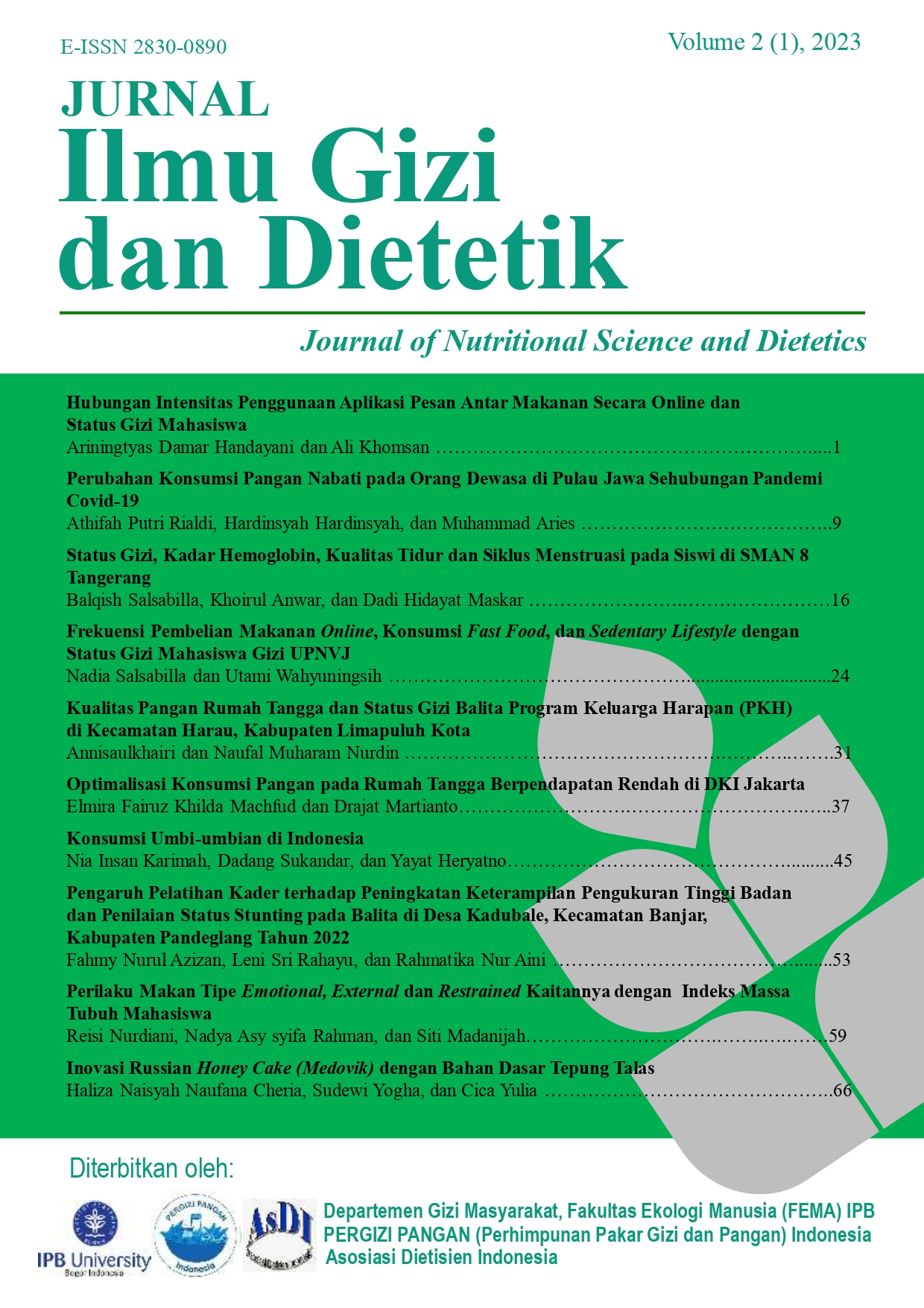Hubungan Intensitas Penggunaan Aplikasi Pesan Antar Makanan Secara Online dan Status Gizi Mahasiswa Relationship between Intensity using Online Food Delivery Applications and College Student’s Nutritional Status
Abstract
The increasing intensity of online delivery and low physical activity during the Covid-19 pandemic can harm health. This study aims to analyze the relationship between the intensity of using online food delivery applications, physical activity, pocket money, and family income with nutritional status during the Covid-19 pandemic. The design of this study was cross-sectional with a sample of 94 subjects from IPB University students who were selected by purposive sampling. Data was collected through interviews and self-administrated online. There was no significant difference between nutritional status and the low and high intensity of using online food delivery applications (p>0.05). There was no significant difference between nutritional status and low and high levels of physical activity (p>0.05). There is no significant difference between nutritional status with pocket money ≤Rp750,000.00 and >Rp750,000.00 (p> 0.05). There is no significant difference between nutritional status and family income ≤Rp5,000,000.00 and >Rp5,000,000 (p> 0.05). Based on the correlation test, there was no significant relationship between nutritional status and the intensity of using online food delivery applications, physical activity, pocket money, and family income (p>0.05). Users of online food delivery applications can control food orders and increase physical activity even if only at home to have a healthier lifestyle.

